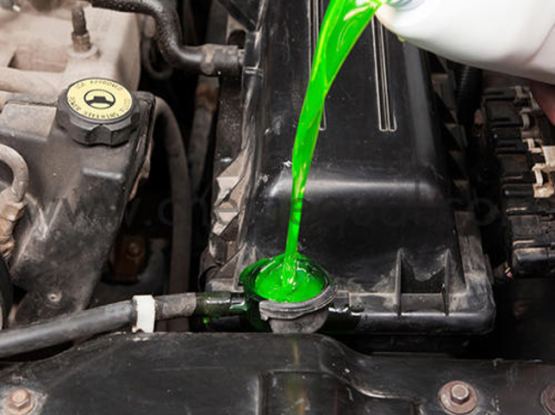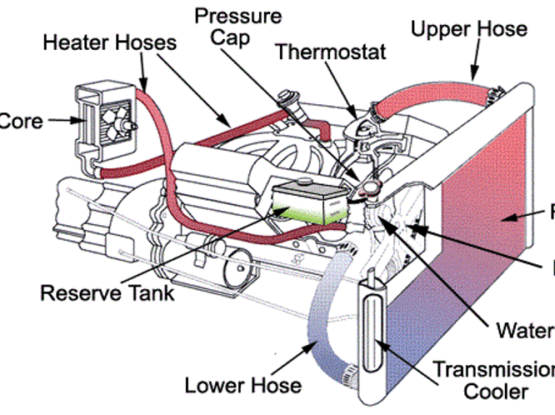INTRODUCTION
The average vehicle owner drives about 15,000 miles (19,000 km) to 20,000 miles (24,000 km) a year. During this period of mileage rack-up, it is reasonable to expect to perform at least one oil change. The question on our customers’ lips isn’t whether or not an oil change is necessary: but rather how often it should be performed. Hold tight. In this article we are going to answer this question and talk about a couple of other things you should know about oil change frequency.
Oil Engineering, and lubrication engineering for that matter, have come a long way, as has the reliability of internal combustion engines. For example, an engine in a 1960 classic car would require more frequent spark plug changes than an engine designed for a 2010 vehicle model.
Advances in oil engineering have led to the development of better quality engine oils which have better chemical composition and require less frequent changes as a result. Don’t be fooled by advances in oil technology: oils aren’t made the same.Generally, like anything else, the better the oil and it’s ability to protect your engine, the more expensive it is. For instance, synthetic oils are more expensive than conventional oils simply because they are formulated with superior additives and provide better engine protection. Thankfully, it’s not hard to find quality oil to purchase-be it synthetic or conventional. Click here to shop oil on our website. Click here for oil filters.
HOW OFTEN IS GOOD ENOUGH?
Changing oil every 3 months is largely a thing of the past for most modern vehicles. Let me briefly digress. “What is a modern car?” you might ask. What is considered a ‘modern car’ is topic of hot, endless, passionate debate among automotive specialists and aficionados. I belong to the faction that considers anything post 1996 a modern car primarily because of the standardization of OBDII. If you are confused, don’t worry (that topic is beyond the scope of this article) but for the purposes of this article, consider any 1996 vehicle model and after a ‘modern vehicle’. Getting back on track…
If you drive a classic vehicle, the 3 month rule may still apply to you. At any rate, you’ll need to check your vehicle owner’s manual (or do a bit more research if your manual is not handy) for oil requirements.
If you are running good quality oil and oil filter (as important as the oil quality), most 2005 and up model vehicles can go about 5000 to 7500 miles between oil changes. If you have a pre-2005 vehicle, 4000 to 6000 miles should be the limit. When using this guide, keep in mind that frequency of oil changes is also dependent on the condition of the engine, the quality of the oil, among other factors. Also be mindful of the fact that, In Ghana, kilometer is a more common and understood measure than miles; so keep track accordingly. To convert kilometers to miles divide km value by 1.61. To convert miles to kilometers, multiply miles value by 1.61.
Again, keep in mind that these intervals are set with good quality oil and oil filters in mind. Your lubrication system,like any other, is only as good as its weakest link. There is no point using good quality oil and a poor quality oil filter because the filter will lose its ability to filter the oil long before the oil needs changing. This will allow foreign particles into your engine, effectively wasting your investment in good quality oil-never mind the damage it can potentially do to your engine. A good quality oil must meet certain standards. If you are not sure how to pick the right oil for your car click here to watch our video on picking the right oil.
WHAT’S TIME GOT TO DO WITH IT?
With Tina Turner’s “What’s love got to do with it” on the radio and flooding out of the speakers flanking me, it seems like a perfect opportunity to nab a portion of her chorus for my current sub heading. Time has got everything to do with oil changes. After all your next oil change should be indicated in mileage or time.
We frequently encounter customers who think that just because they haven’t driven their car ‘much’ since the last oil change, there is no need to perform the next oil change even when the time is up. Wrong! Here’s why.
Once oil enters the engine, the oil chemical breakdown process begins. The additives in the oil mix with leftover molecules from the previous oil and small metal particles from the engine. This begins the breakdown process of the new oil. Note that, even if you started your car once or twice after the last oil change, the heat from the combustion process also sets the clock ticking on the breaking down of the engine oil molecules and additives. That is why repair shops should provide a sticker that shows your next oil change in terms of mileage or time- whichever comes first.
Here is a scenario to explain. Let’s say your car has 20,000 miles on it. Let’s further assume you went for an oil change on January 1, 2019 and the ‘Next Service’ sticker says the next oil change is due at 26,000 miles or on June 1,2019. If you have only driven your car 1000 miles by June 1,2019, you should still change your oil. The oil breakdown process is already ongoing. The deterioration of the oil’s integrity goes hand in hand with a reduction in its ability to protect your engine.
We strongly encourage setting an alarm on your phone to remind you about 3 days before an oil change is due. This will give you ample time to shop for quality oil and filters.
THE PROBLEM WITH SUNDAY-ONLY CARS
In Ghana, it’s somewhat common for people to have vehicles reserved for Sundays only. While this is a seemingly nice problem to have, it does present an issue.
Vehicles that are rarely driven, for example driven on Sundays only, are prone to sludge (thickened oil) build-up because the engine hardly gets a chance to come up to operating temperature and burn out sludge-forming particles. Needless to say, such vehicles are more prone to performance problems such as clogged catalytic converters and fouled spark plugs. Of course the catalytic converter and spark plugs issues aren’t related to the oil but just something to think about.
At any rate, we highly recommended that you run only synthetic oil in your Sunday-only driver. It has better protective properties especially against sludge build up. A car that is parked most of the time needs all the help it can get.
NEW KID ON THE BLOCK
There is a new breed of synthetic oil on the market. Oil that only needs changing after 20,000 miles or 1 year. Yes! That means you only get to change oil once the entire year! We will be talking about this in an upcoming article or video. Watch this space!
IN CONCLUSION
1. Check your owner’s manual for oil change frequency.
2. Use only good quality oils and good quality oil filters. Avoid poor quality oil. Not only does poor quality oil not protect your engine adequately, it breaks down easily so you’ll have to change it again sooner.
3. Whenever in doubt speak to a qualified automotive expert. You can leave your comments and questions. One of our experts will address them. Please be patient. We get a lot of questions so we address them in the order in which we get them.
This article was written by Kwabena Mensah. If you have any questions for him or would like to connect with him, please do so in the following ways
Linkedin: https://www.linkedin.com/in/mike-mensah-e-i-t-38490715/
Facebook: https://www.facebook.com/wofakwabenamensah
Instagram: https://www.instagram.com/kwabena__mensah/
Our articles help to educate thousands of vehicle owners in Ghana and beyond to help make them better car owners. Better car owners manage their vehicles better. This means their vehicles hold their value better and if they decide to sell, they typically get a better resale value.
If you want to be notified of new articles or videos, please follow us on Facebook and Instagram @autoshackghana or send us your email to ask@autoshackghana.com. We will add you to our notification list.
You can also subscribe to our YouTube Channel: https://www.youtube.com/channel/UClBPm4NK4te3KrwJDSgEWjQ?view_as=subscriber





